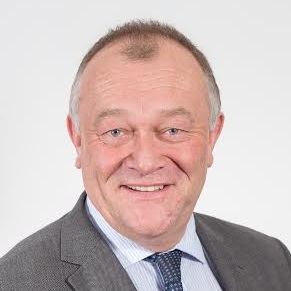
CIHT South West are holding an Emerging Professional Presentation Competition and the competition is fierce with quality abstracts and presentations from across the public and private sector. The initiative is a great way for Emerging Professionals to get involved with CIHT, get industry recognition and develop their presentation skills.
Join other savvy professionals just like you at CIHT. We are committed to fulfilling your professional development needs throughout your career
Emerging Professionals from across the South West region were invited to submit 150-word abstracts outlining the content of their presentation. Not wanting to constrain the discussion, there were no topical restrictions of any kind. It is important for Emerging Professionals to be able to share their interests and views of what is important to the future of the transport industry.
The presentations were delivered virtually on Teams. The audience included CIHT members and other professionals who register to attend, and a judging panel featuring the region’s Emerging Professional Chairs and previous winner Lauren Allington, who is presenting at the South West Conference this year (another opportunity which will be available to this year's winner for next year's conference). Following the presentation, the judging panel and audience were able to ask questions.
CIHT Emerging Professional Conference is just around the corner. Attend to meet with other early careers professionals and join influential names within the industry to discuss and hear about key issues.
A range of topics curated by our very own Emerging Careers Professional Network will be covered.
The South West EP Presentation Competition is scheduled for Thursday 21 March at 12 pm:
Improving city transportation should mean more than just adding a Metro System. As cities face the challenges of meeting net zero goals, there is strong focus to encourage both public transport and ‘active travel’. Active travel programmes complement a wider urban improvement and help produce healthier, more resilient, and enjoyable places to live and work.
This presentation will address: The South Wales Metro, South Wales Metro economic and social impacts, promotion of inclusive active travel, integration of multi-modal travel, encouragement of a sustainable model, and monitoring the ongoing effectiveness of active travel programmes. Successful active travel programmes consist of several elements, ranging from transport, public health, wellbeing, city planning, and the environment. With budgets always under pressure, the overall goal is to develop active travel programmes that are genuinely inclusive, for all age groups, genders, economic backgrounds, and that command real public support and engagement.
Parcels as Passengers (PaP) is a trial initiative delivered through the West of England Combined Authority’s (WECA) Future Transport Zone (FTZ) programme. The trial aims to utilise unoccupied space on coaches to transport parcels between UK cities where a direct coach link already exists. The trial involves the use of coach services as a direct replacement for dedicated courier vans, and e-cargo bike couriers Zedify to undertake zero emission first and last-mile delivery.
This trial has significant potential to provide a cost effective and commercially viable model for all partners. Possible benefits of the PaP approach include carbon savings and improved air quality, as well as diversification of income for commercial coach services at a time where bus patronage figures have been significantly impacted upon. Indicators of trial success include potential quantification of carbon savings, the proof of commercial viability and the number and percentage of parcels delivered on time.
Speed flow curves are used in strategic models to assign speeds to vehicles based on the volume of traffic affecting vehicle routing during the assignment process. There are different methods of estimating speed flow curves and adapting them to fit the formats of modelling packages.
National Highways commissioned research comparing speed flow curves with measured data in the UK. The status of the project following a literature review has shown that the current curves recommended in the UK, have not been updated since the cap on HGV speeds was increased. The project now seeks to use National Highways data and compare it to the curves identified in the literature review to produce new equations if the current equations are shown not fit the data well. This study is the thought to be the first of its kind since National Highways begun compiling more granular speed-flow data through the WebTRIS portal.
Working in collaboration with National Highways the purpose of this investigation was to assess the impact of smart motorways on vehicle emissions. The anticipated theory being that if traffic was managed through Smart Motorway operation to travel at a steady speed, then the carbon emissions would reduce because of less braking and acceleration. To check this hypothesis, we built a VISSIM model for the M62 Between J10 and J12 which has been under smart motorway operation since January 2021.
Two model scenarios were developed to include both smart and non-smart motorway operation. The model was validated to a high standard including validation against lane choice. We applied a Passenger car and Heavy duty Emission Model (PHEM), produced by Graz University of Technology, to assess the impact using the outputs from the model. The analysis provided some interesting findings which we would like to present to the CIHT.
Whilst crowd crushes at events such as Astroworld (2021) or the Seoul Halloween night (2022) are rare, they are devastating and oftentimes deadly. Queuing at mass events is usually inevitable, however the layout and positioning of these queues is critical in maintaining a safe environment for attendees. At the early stages of a design, basic area calculations can provide an initial understanding of the amount of space required, whereas further down the line, microsimulation models are used to dive further into peoples' behaviour and identify potentially dangerous pinch-points.
I will cover both static (area-based) and dynamic (microsimulation-based) assessment methods and will share examples of crowding concerns encountered in my recent work. I will also discuss potential mitigations and how the various forms of analysis have informed design decisions.
Public Consultations and engagement are increasingly seen as one of the most important aspects of Transport Planning. Research was conducted on the key aspects of a public consultation, based on the experiences and opinions of those working in the Transport Planning sector, in a local authority. This highlighted that fundamentally, consultations should be proportional and, disingenuous consultations need to be avoided. Furthermore, a clear structure improves the quality of consultations.
Based on this, a toolkit has been produced which aims to aid in the planning and running of public consultations, as well as the actions which follow. This comprises of a flowchart which identifies which type of consultation should be undertaken, a key information document, and a checklist of all actions and tasks which may be necessary. Beyond this, the research made it clear that staff wellbeing needs to be prioritised, as an urgent matter which goes beyond the toolkit.
Cornwall is an extremely rural county with a dispersed population that almost doubles through our peak holiday season. Effectively connecting communities and enabling the use of Public Transport for work, health, social and education purposes is our aim with Transport for Cornwall.
TfC is our umbrella brand that has created a partnership between operators and the Local Authority and enabled continual and innovative development with the introduction of an App and Website, integrated ticketing across all operators, tap and cap, our Bus Fares Scheme and unified publicity for customers.
Through true partnership working we have been able to overcome challenges that were we working in silo’s we would not have been able to and my presentation will cover these challenges and subsequent solutions that have enabled network development and for Cornwall to remain an exemplar of Public Transport with the passenger at its core.
Travel Plans are essential in the quest for net-zero emissions. Single-occupancy vehicle travel continues to rise despite the dip in travel during the pandemic, and the path to decarbonising the sector would only be viable when the energy sector is entirely carbon-neutral, hence a need to maximise the tools within the transport sector.
Travel Plans set measures to promote and encourage sustainable travel to developments; for Workplace Travel Plans, these measures are geared primarily towards staff members rather than ensuring sustainable travel for all trips attracted to the development.
Given the urgency of climate change and needed actions, Workplace Travel Plans should be further categorised based on several factors, such as staff numbers and net-attracted trips, as the current format is mostly effective for development with high staff numbers.
When I applied to join the A382 Live Labs 2 project, even then I knew that the aim to construct the UK’s first carbon negative highway was ambitious. However, I have since been delighted to discover that there is an ever-growing number of innovations that we can explore to reduce our carbon footprint on schemes of this size. But for each innovation comes a new challenge – the practical implications of calculating carbon savings, interrogating suspected ‘greenwashing’ claims, and navigating the minefield of carbon credits do not reside in the confines of a university textbook, or in the essays of academic literature. They are met individually head-on in the real-world application of a large, ambitious project.
As a recent Geography graduate entering the industry, I believe I can therefore offer a valuable interdisciplinary perspective on the juxtaposition between carbon theory and practice on a major highways scheme like the A382.

CIHT South West Exeter EP Chair & CIHT South West 2023 Emerging Professional of the Year

CIHT South West Bristol EP Chair & CIHT South West 2023 Emerging Professional of the Year

CIHT South West EP Presentation Competition 22/23 Winner

CIHT Past President
{{item.AuthorName}} {{item.AuthorName}} says on {{item.DateFormattedString}}: